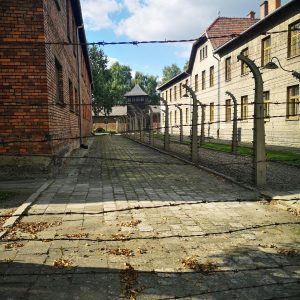Pakistan’s top court postpones hearing on election dates until May 23
KARACHI, Pakistan (AA): Pakistan’s Supreme Court has postponed until May 23 a crucial review petition by the country’s top election authority asking the apex court to review its earlier verdict of holding elections in the most populous Punjab province.
The hearing began a day after the Election Commission of Pakistan failed to hold elections in the province on May 14 ordered by a three-member bench of the apex court led by Chief Justice Justice Umar Ata Bandial in April.
The government of Prime Minister Shehbaz Sharif, however, citing unavailability of funds and security concerns, pleaded lack of readiness to hold elections.
“We will see what’s happening across the country over the past five days. The government and military installations are being burned. The economy is in a bad shape,” Justice Bandial, who is heading the same bench, was quoted as saying by the media.
The top judge was ostensibly referring to violent protests and attacks on military and public installations by angry mobs after the arrest of Imran Khan in a corruption case from Islamabad High Court last week.
The top court, however, declared the arrest illegal and ordered Khan’s release, inviting ire from the government, which demands the ex-premier be made accountable for the violence.
The top judge also remarked that the government and the opposition should consider restoring the stalled dialogue process to resolve the deepening crisis.
However, Khan’s intransigence and aggressive posturing makes that prospect quite unlikely.
The bench, which comprises the same judges who had passed the April 4 order, issued notices to the attorney general and the provincial governments for the next hearing.
Government’s protest
The development came after some activists of the Jamiat e Ulema e Islam (JUI) stormed the “red zone,” which houses several important government buildings, and gathered outside the Supreme Court to protest against the “biased attitude” of the court towards the government and “special treatment” given to the highly popular former Prime Minister Imran Khan.
Footage aired by multiple local broadcasters showed thousands of activists removing the barricades placed by police and entering the red zone, chanting anti-judiciary slogans.
The JUI is led by a former opposition leader, Maulana Fazl-ur-Rehman, who has often been personally targeted in Imran Khan’s charged public diatribes.
The government accuses the chief justice and a few other judges of having “political leanings” and forming benches of “like-minded” judges to support the ex-premier, who has been facing a slew of cases.
In his speech in the Parliament on Monday, Maulana Asad Mahmood, the JUI’s parliamentary leader, said that the protest will continue until the Supreme Court “reverses its unconstitutional verdicts.”
Ex-premier denounces arrests
Khan accuses the government of unleashing a spate of arrests against supporters of his Pakistan Tehreek-e-Insaf (PTI) party following last week’s violent protests.
“So without any investigation into who was responsible for arson on government building or dozens of deaths of unarmed protesters by bullet wounds, around 7,000 PTI workers, leadership and our women have been jailed with plans to ban the largest and only federal party in Pakistan,” Khan tweeted on Monday.
He also charged the government with facilitating the protest to put pressure on the top court for desired verdicts.
“Meanwhile, these goons are being facilitated by our security agencies to take over the SC (Supreme Court) and subvert the constitution. All citizens be ready for peaceful protests as once constitution and SC destroyed, it is the end of the Pakistan dream,” he went on to say.
The ongoing political and legal turmoil follows a deepening economic crisis with sky-rocketing inflation and depleting foreign reserves.
Khan, who dismissed his two provincial governments and the assemblies in January this year to pave the way for snap elections, insists that a fresh mandate is the only way to steer the country out of political and economic turmoil.
The government, nonetheless, rejects the demand, insisting that elections will be held as per schedule in October.










